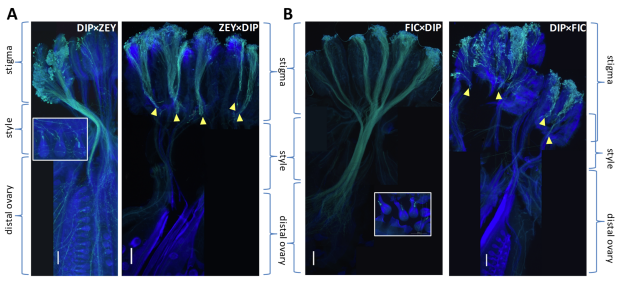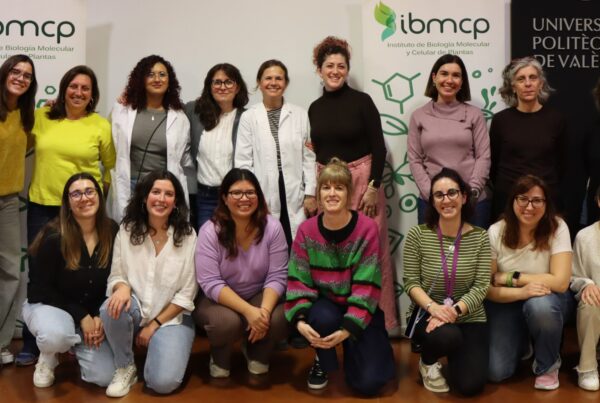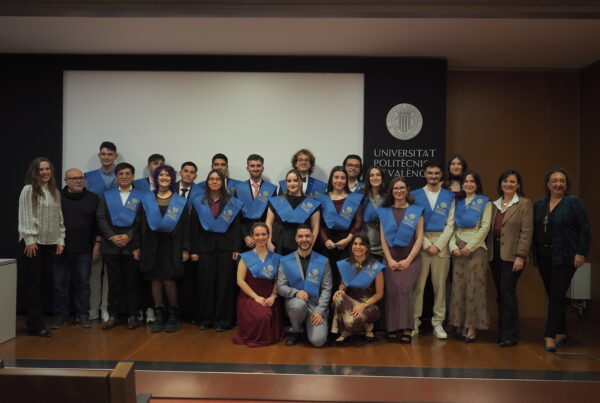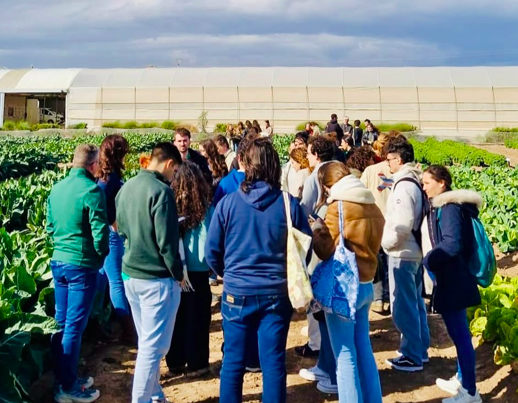The recent article of our Genomics and Plant Breeding group on interspecific barriers and reproductive isolation in Cucumis is already published online.
María Ferriol, Unzué Simó, Carme J. Mansanet, Alejandro Torres, Belén Picó, Antonio J. Monforte and Carlos Romero.
Abstract:
Hybridization between Cucumis species, including cultivated melon (C. melo), is hampered by Interspecific Reproductive Barriers (IRBs). However, the nature of IRBs in Cucumis is largely unknown. This study explores locations, timing, and contribution to reproductive isolation (RI) of preand post-zygotic IRBs in Cucumis. To do this, we assessed crossability among Cucumis African wild species and C. melo at the pre-zygotic level by visualizing pollen tubes under fluorescence microscopy and, post-zygotically, by evaluating fruit/seed set and F1 hybrid fertility. Genetic distances among Cucumis species were inferred from Genotyping-by-Sequencing, and its correlation with RI stages was analyzed. Observed pre- and post-zygotic IRBs included pollen tube arrest, fruit set failure, and hybrid male sterility. Unilateral cross-incongruity/incompatibility (UCI) was detected in some hybridizations, and dominant gene action is suggested for pistil-side UCI in interspecific F1 hybrids. Notably, the allotetraploid C. ficifolius was very fertile as a seed parent but infertile in all reciprocal crosses. Contribution to RI was found significant for both pre- and post-zygotic IRBs. Additionally, a significant positive correlation was detected between genetic distance and pre- and post-zygotic RI stages. Interestingly, UCI offers an accessible system to dissect the genetics of IRBs in Cucumis, which may facilitate the use of wild relatives in breeding.








